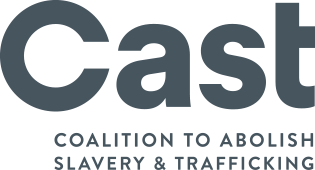
The COVID-19 pandemic has taken a terrible toll on all Californians. While Gov. Gavin Newsom’s recently announced California Comeback Plan allocates billions of emergency aid funding to those hurt by the pandemic, one group hit harder than most has been left out of the budget proposal: human trafficking victims.
I and Assemblymember Miguel Santiago urge Gov. Newsom and the California State Legislature to correct that omission. We call for $10 million in one-time additional funding for human trafficking victim services.
Recently, a woman, Laila (an alias), called the Coalition to Abolish Slavery and Trafficking’s (CAST) 24-hour hotline, desperate. She had run away from her sex trafficker, who had always beaten her but now threatened to kill her three children, aged 5, 3 and 2 months. They were hiding out in her car, terrified, with no place to go. Due to the outsized demand for safe housing as a result of COVID-19, CAST’s shelter was full; though they called more than 30 other shelters, none could accept all four of them.
CAST provided services to this brave survivor and her children in her car for a week until they were finally able to secure a room in their emergency shelter hotel. Pondering her situation, Laila said “it shouldn’t be this hard to get into safe housing and to protect my children. They always tell you to leave but they never tell you there might be nowhere to go… You guys (CAST) never gave up on me or my kids and because of that we are going to make it.”
Sadly, Laila’s plight is far from unique.
California is home to several of the most concentrated hubs for labor and sex trafficking in the country. Victims of this heinous crime were made ever more vulnerable by the pandemic, due to the suspension of mechanisms which ordinarily would have uncovered trafficking situations, economic desperation due to job loss, school shutdowns, lockdown and travel restrictions, being quarantined with potential traffickers, housing insecurity, unfair evictions, and shelter scarcity due to social distancing capacity restrictions, closures due to reported COVID-19 infections and lack of funding.
Last summer, Cast saw a 185% spike in urgent human trafficking cases. The sharp rise has prevented massively overburdened service providers from being able to keep up with the increased need. This leads to survivors falling through the cracks, with some re-trafficked, landing right back into a horror show full of violence and trauma in which their life is no longer their own.
The Golden State’s preponderance of trafficking cases is due in part to large runaway and homeless youth populations, proximity to international borders, the number of ports and airports, a significant immigrant population, and industries that attract forced labor and sex trafficking.
For many individuals working in the “informal economy,” (often ineligible for unemployment assistance), pandemic-related income loss and layoffs force them to turn to higher-risk employment situations to meet basic needs or avoid homelessness, increasing their vulnerability to being trafficked.
The one-time funding of $10 million, extremely modest compared to some of the allocations for other groups impacted by the pandemic, would be administered by the Office of Emergency Services and divided among the 21 anti-human trafficking direct service providers across the state. Their immediate, trauma-informed services not only help victims escape their traffickers and prevent them from staying with them longer, but prevent vulnerability to being trafficked or re-trafficked
The human trafficking survivors I have interviewed since 2009 for my ongoing work as Goodwill Ambassador for the United Nations Office on Drugs and Crime (UNODC) for the Global Fight Against Human Trafficking are among the most extraordinary, brave and generous-hearted people I have ever met.
Most, upon exiting a veritable nightmare, make great use of services to rebuild and reclaim their lives, but never turn their backs on their sisters and brothers left behind in the bondage of this growing, hideous crime. Their survivor voices are growing in volume, but the vast majority remain silenced while still victimized – many right here, under our noses, unheard and unseen.
Whether a debt-bonded migrant worker picking vegetables whose family is threatened should he run away, a trans homeless kid being forced to participate in survival sex trafficking, or a woman trafficked here from another country as an unpaid, physically abused nanny, all are worthy of our most vigorous efforts to help ensure their freedom, survival, and potential to thrive.
Please, Gov. Newsom and the state Legislature: Don’t let California turn its back on them in their greatest hour of need.
—
Editor’s Note: Academy Award-winning actress Mira Sorvino is a UNODC Goodwill Ambassador for the Global Fight Against Human Trafficking. Assemblymember Miguel Santiago (D-Los Angeles) represents the 53rd District, and leads efforts to fund services for human trafficking survivors.
Together, we can be the community survivors rely on. Join us by making a donation to Cast. Click here to donate.
